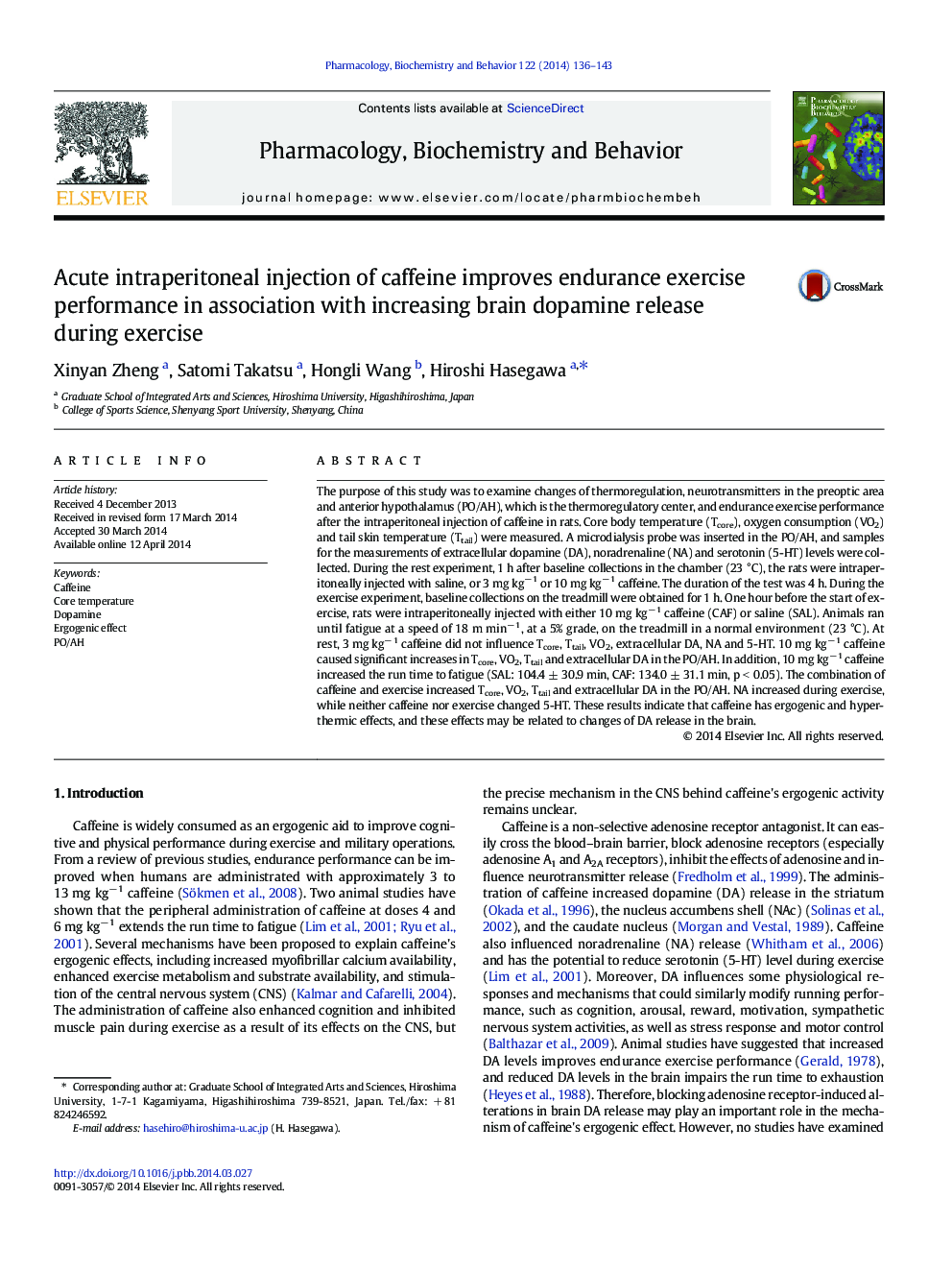| کد مقاله | کد نشریه | سال انتشار | مقاله انگلیسی | نسخه تمام متن |
|---|---|---|---|---|
| 2012879 | 1541862 | 2014 | 8 صفحه PDF | دانلود رایگان |
• High-dose caffeine was more effective on the central nervous system.
• Caffeine improved the exercise capacity associated with hyperthermia.
• Caffeine overrode the critical limiting core body temperature during exercise.
• Caffeine increased extracellular dopamine release in the brain during exercise.
• The ergogenic effect of caffeine may be related to brain dopamine release.
The purpose of this study was to examine changes of thermoregulation, neurotransmitters in the preoptic area and anterior hypothalamus (PO/AH), which is the thermoregulatory center, and endurance exercise performance after the intraperitoneal injection of caffeine in rats. Core body temperature (Tcore), oxygen consumption (VO2) and tail skin temperature (Ttail) were measured. A microdialysis probe was inserted in the PO/AH, and samples for the measurements of extracellular dopamine (DA), noradrenaline (NA) and serotonin (5-HT) levels were collected. During the rest experiment, 1 h after baseline collections in the chamber (23 °C), the rats were intraperitoneally injected with saline, or 3 mg kg− 1 or 10 mg kg− 1 caffeine. The duration of the test was 4 h. During the exercise experiment, baseline collections on the treadmill were obtained for 1 h. One hour before the start of exercise, rats were intraperitoneally injected with either 10 mg kg− 1 caffeine (CAF) or saline (SAL). Animals ran until fatigue at a speed of 18 m min− 1, at a 5% grade, on the treadmill in a normal environment (23 °C). At rest, 3 mg kg− 1 caffeine did not influence Tcore, Ttail, VO2, extracellular DA, NA and 5-HT. 10 mg kg− 1 caffeine caused significant increases in Tcore, VO2, Ttail and extracellular DA in the PO/AH. In addition, 10 mg kg− 1 caffeine increased the run time to fatigue (SAL: 104.4 ± 30.9 min, CAF: 134.0 ± 31.1 min, p < 0.05). The combination of caffeine and exercise increased Tcore, VO2, Ttail and extracellular DA in the PO/AH. NA increased during exercise, while neither caffeine nor exercise changed 5-HT. These results indicate that caffeine has ergogenic and hyperthermic effects, and these effects may be related to changes of DA release in the brain.
Journal: Pharmacology Biochemistry and Behavior - Volume 122, July 2014, Pages 136–143
